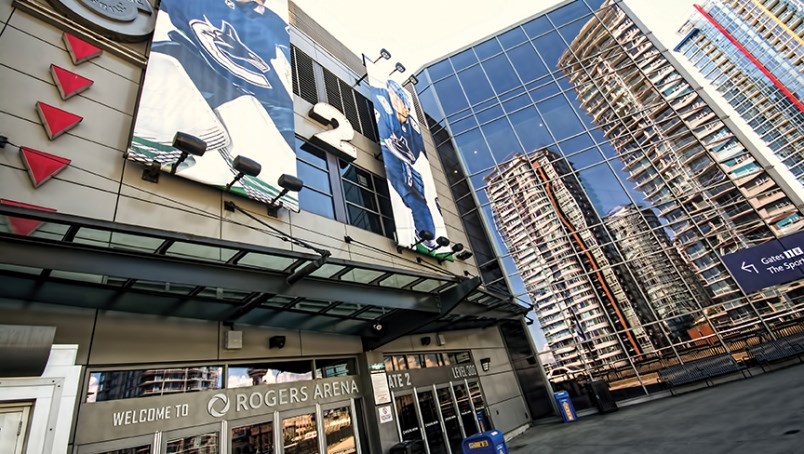No Lions roar. No high-fins from Fin. No Southsiders songs. No foot-longs at the Nat.
There is zero indication that watching professional sports live in Â鶹´«Ã½Ó³»will be possible by year’s end.
And if, or when, local teams can entertain us on TV before 2021, they are likely to do so outside of the province in central league locations.
In speaking to the Â鶹´«Ã½Ó³»Canucks, BC Lions, Â鶹´«Ã½Ó³»Whitecaps FC and Â鶹´«Ã½Ó³»Canadians, Glacier Media (TSX:GVC) found that Vancouver’s most popular sports teams are all awaiting direction from their respective league headquarters in New York or Toronto.
The most significant and common pandemic hurdles they face include:
- border restrictions for player travel;
- dealing with inter-country and inter-state/provincial public health orders;
- finding central locations to host games; and
- addressing decimated revenue streams without ticket sales.
“The guys in New York are providing us with models and ideas every week. The only thing no one can provide us with is a real timeline when things are in place,” said Axel Schuster, sporting director for the Whitecaps.
Major League Soccer, said Schuster, is considering central locations to play games. This idea is in a more advanced stage with Major League Baseball (MLB) (the Canadians’ parent league), and more recently the National Hockey League has indicated it is looking at up to four host cities to complete its 2020 season.
NHL Commissioner Gary Bettman told media April 22 the league would avoid any “hot spots” for the virus.
A central location for the MLB likely means the Canadians’ season would be cancelled, said Rob Fai, the team’s spokesman and play-by-play broadcaster.
“I would be really surprised to see a baseball season in Vancouver, based on the hurdles we would have to jump,” said Fai.
The MLB is considering playing all its games in about a dozen small stadiums in Florida or Arizona, without fans. Players would be housed in closely monitored quarters and subjected to frequent testing.
Under that scenario, the teams would likely keep their farm squads, such as the Canadians, in the same location for the season.
“If they can keep all their prospects and players together, then they can at least control the narrative, control the ability to go inside or outside,” said Fai. “Whereas if they’re sending them to all these cities, in different states, with different rules and different levels of COVID, that’s a lot harder to control, so realistically it’s a trickle down effect. Then you add the border into the equation to get into Canada.”
Schuster said the MLS has similar jurisdictional concerns.
He added that leagues in Europe are able to start up because many are played in one federally regulated jurisdiction.
The Whitecaps started their season before the pandemic and so every player is in Vancouver, said Schuster. If games are centralized, either the border would need to be reopened to all them to move to whatever cities the league chooses, based on logistics and field availability or players would need a federal travel exemption. Schuster said he doesn’t know if the league has discussed either option with governments.
“Besides medical questions there are a lot of political questions, because we don’t want to break rules and set bad examples.”
Asked how the Whitecaps could eventually return to play on Â鶹´«Ã½Ó³»and with perhaps limited (distance-focused) seating capacity, Schuster said “we should not limit our thinking” but “who knows.”
The priority, he said, is ensuring the Whitecaps are following public health orders for all of society. And those orders, such as restaurant regulations and airline travel, will shape how games will be played out.
The soccer, hockey and baseball leagues have TV and radio agreements that shelter them somewhat from a lack of ticket sales.
But Lions president Rick LeLacheur said the Canadian Football League (CFL) depends much more on ticket revenue.
“Seat sales are our highest revenue. We need fans in the stands.”
Still, although players are paid by the game, fanless games are possible, he said last Tuesday, hours before the CFL went public with a $150 million assistance package request to the Canadian government.
“It’s highly unlikely we’ll be playing games this summer, so we’ll look to fall,” said LeLacheur, noting the first hurdle is getting players into Canada from the U.S.
Once that’s done, the league could host games in each city, unlike the apparent plans for MLS, MLB and the NHL.
If physical distancing regulations loosen, LeLacheur said he could envision limited seating at games.
“It will depend on what government dictates.”
BC Place could have restricted entry points, seats could be distanced by two metres or the team could be limited by a percentage of seats per section.
“Maybe families could sit together,” LeLacheur said. “You could have single seats, double seats. It’s a real challenge.”
Likewise, Fai surmised: “Whether sports comes back, that’s up to the powers, but what will it look like when you walk into a stadium or arena or a field? I think there’s going to be a dramatic shift.”



